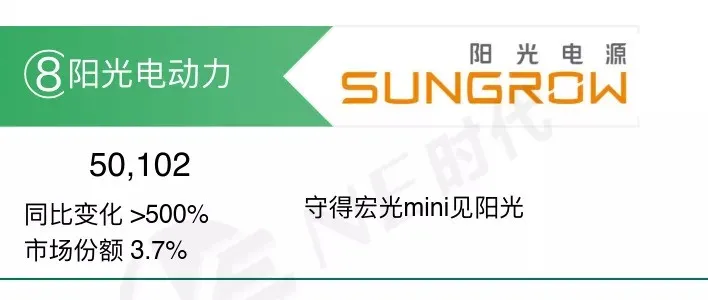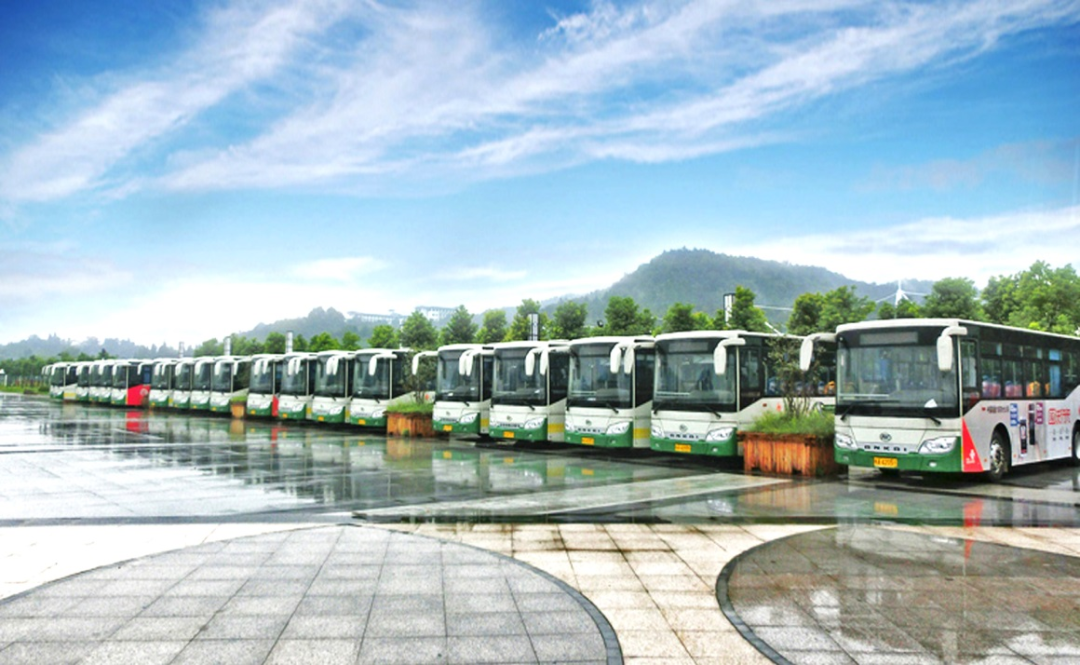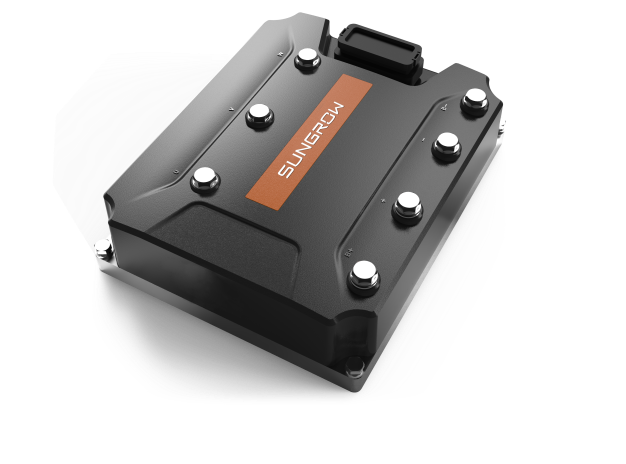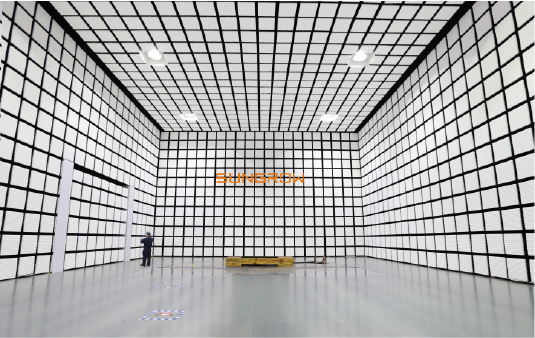Author: Huangshan
The national popular car “Hongguang MINI EV” appeared in July last year and has since steadily held the top spot in China’s pure electric vehicle sales, surpassing even Tesla.
Behind the success of Hongguang MINI EV is a group of powerful suppliers. In terms of electronic control, a professional electronic control manufacturer, SUNGOLDPOWER, has been providing assistance to Hongguang MINI EV.
SUNGOLDPOWER was established as a wholly-owned subsidiary of solar photovoltaic giant Sungrow Power Supply Co., Ltd. (stock code 300274) in 2016. In fact, Sungrow Power Supply has been researching electronic control products since 2010. With the help of the popular sales of Hongguang MINI EV, SUNGOLDPOWER has quickly come under the spotlight.
In 2020, SUNGOLDPOWER shipped 77,000 sets of electronic control products, ranking eighth in the industry. In the first quarter of 2021, SUNGOLDPOWER’s shipments had already reached 60,000 units, continuing to rise in the rankings.


Did SUNGOLDPOWER just fly high because of its good fortune in encountering Hongguang MINI EV?
In fact, SUNGOLDPOWER has always been relatively low-key over the years. “Apart from being the main supplier of Wuling Hongguang MINI EV, SUNGOLDPOWER’s passenger car products have already entered top-tier car companies such as Geely, Chery, and Jianghuai. Our market share in the special new energy vehicle market has also exceeded 30%,” said SUNGOLDPOWER’s President Hong Siming.
When SUNGOLDPOWER became involved in the Hongguang MINI EV project, other electronic control manufacturers had already been involved earlier, and SUNGOLDPOWER was a latecomer that became the main supplier.
Recently, “Electric Vehicle Observer” visited SUNGOLDPOWER twice to learn about the company’s process from nothing to something, and from small to large. We found that “in the electronic control breakthrough battle, SUNGOLDPOWER has been running wild and is accustomed to counterattacking.”
SUNGOLDPOWER and the Automotive Industry
In 1990, Cao Renxian graduated from Hefei Industrial University with a bachelor’s degree. This native of Xiaoshan, Zhejiang, who majored in automation, was exempted from the entrance exam due to his outstanding results and was admitted to graduate school. He stayed on as a teacher after earning his master’s degree in 1993.
While in school, Cao Renxian’s main research direction was renewable energy generation, with a focus on photovoltaic inverters. In 1997, carrying a simple dream of providing clean lighting to residents in western China, Cao Renxian left campus and founded SUNGOLDPOWER.
Today, SUNGOLDPOWER’s business covers fields such as solar power, wind power, energy storage, electricity, and hydrogen. Among them, the company’s photovoltaic inverters, wind power converters, energy storage systems, and other businesses are all industry leaders, with the photovoltaic inverters having the world’s largest shipments for multiple years.It’s hard to imagine this company entering the electric vehicle industry and developing its own electric control systems.
Back in 2009, the national “Ten Cities, Thousands of Vehicles” project for new energy vehicles was launched in China. Hefei was one of the pilot cities, and Ankai launched its pure electric passenger car for trial operation in Hefei and other cities.
At that time, not only did whole-vehicle manufacturers just start to develop, but the supply chain was also incomplete. Ankai was not satisfied with the cooperation with its suppliers, so it turned to Anhui University and Sungrow Power Supply for co-development of the motor and electric control systems.
In 2010, Sungrow Power Supply Research Center began the pre-research of the electric control project. By 2012, the development of the electric control product had basically been completed. Compared with similar products on the market, Sungrow’s electric control system had high efficiency and reliability, gradually gaining recognition from customers and achieving large-scale application in whole-vehicle manufacturers like Ankai.

In addition to Ankai, Sungrow Power Supply also provided supply for other vehicle manufacturers successively, but before 2015, the entire new energy vehicle industry was in the demonstration stage with less demand, resulting in only 1878 cars that used Sungrow’s electric control.
An Unexpected Harvest of the 144V Product
The climb in shipments of Sungrow’s electric control began in 2016 and 2017 when Jiangling and Zotye, manufacturers of micro electric vehicles, achieved high sales.
The reason that Sungrow Power Supply won the recognition of the two customers was that they took the lead in promoting the 144V electric control system in the industry.
In 2015, most new energy vehicles in China had three main voltage platforms: a 600V platform used for passenger cars, 336V for Class A passenger cars, and 60V for Class A00 micro passenger cars. Sungrow’s marketing and technical staff met with BAOQI Automobile at an exhibition and developed an electronic control unit product for BAOQI’s passenger cars.
The cooperation started with the development of an electric logistics vehicle project that covered the “last mile” delivery. The difficulty of the project was selecting 144V as the voltage platform, which had no corresponding products on the market. There were only high-voltage products with IGBT modules, or low-voltage products with MOS modules in parallel connection. Rapid development was critical to the success of the project.
Sungrow Power Supply had conducted previous research on MOS parallel-type driver products and developed the 144V electric control system quickly based on that.

After the product had been developed, vehicle tests were needed to be carried out. Time was tight, and customers from three electronic control companies required sequential installation and testing in the same day for comparison purposes.To ensure the success of the test drive, engineers from Sungrow Power carried out continuous verification tests on the motor test bench in the days leading up to the initial test of the vehicle. The new product presented a significant challenge as it required not only the design of a uniform current, but also the consideration of the durability of power devices to guarantee product reliability. The verification tests continued without interruption until the day before the vehicle was loaded, with customers and competitors closely observing the process.
Despite being the last to load, Sungrow’s electric control system smoothly completed all critical item tests, gained customer recognition, and became the first domestic electric control manufacturer to mass-produce 144V electric controls.
However, the 144V electric control developed by Sungrow Power did not receive many orders for the final product of the Bauqi project.
Nevertheless, the opportunity soon presented itself. With the growing popularity of micro pure electric vehicles, A00 passenger vehicles such as the Jiangling E200 and Zotye Cloud 100 PLUS began to use the 144V voltage platform to improve the overall vehicle performance. Thanks to their previous experience, Sungrow Power could easily provide a series of models for these two companies.
From 2016 to 2018, Jiangling and Zotye’s performance in the micro electric vehicle industry was remarkable. Sungrow Power’s 144V electronic control system also achieved large-scale production. In addition, Sungrow’s electronic control provided continuous supplies to bus companies such as Ankai and Golden Dragon, and bulk applications were also used in logistics vehicles such as Geely Distance, Ruichi, Jinlv, Kairui, Zhongtong, Xinyuan, Kaiwo, and other mainstream manufacturers in the passenger and commercial vehicle markets.
In 2016, based on the electric car division, Sungrow Power established Sungrow Electric Power Company, which primarily sold electric control and drive systems. In 2017, their shipments exceeded 10,000 units, and in 2018 they exceeded 20,000 units. Sungrow Electric Power’s electronic control products finally entered a period of rapid growth.
In 2018, Sungrow Electric Power’s shipments rose to 27,700. However, the growth suddenly came to a halt in 2019. Due to various reasons, the sales of China’s new energy vehicles market failed to continue the previous year’s growth trend. Sungrow Electric Power’s two major customers also experienced a sharp decline in their sales of entire vehicles in that year.
Firstly, Jiangling New Energy had to reorganize its product line due to its partnership with Renault and suspended the development and launch plan for its previously developed products. Its sales of electric vehicles dropped from 48,200 in 2018 to 14,900 in 2019.The situation of Zotye Auto is even worse, with a significant reduction in sales of Zotye electric vehicles from over 30,000 to 1,941 due to poor management and massive production stoppages.
Influenced by two major customers, the shipment volume of Sunshine Power’s electric controllers rebounded from a high point, with a total of 19,800 units delivered in 2019.
Sunshine Power must find new growth points.
At the end of 2019, Sunshine Power began to contact SAIC-GM-Wuling. A new vehicle called the Hongguang MINI, with a price of around RMB 30,000, represented SAIC-GM-Wuling’s lofty ambitions in the micro pure electric vehicle market.
SAIC-GM-Wuling’s E100 and E200 had good sales, and the success of the Liuzhou model led to many cities proactively studying the promotion of new energy vehicles. The new Hongguang MINI project naturally attracted many suppliers. In terms of electric control, two electric control manufacturers began to dock and test the project earlier than Sunshine Power.
Similar to the situation in the past on the 144V electric control, Sunshine Power strives to obtain the opportunity for the third candidate and accelerate development validation to fully reverse the disadvantage.
At the beginning of 2020, the Hongguang MINI conducted winter tests in Heihe as planned, and the three enterprise’s electric control products needed to compete in the ice and snow. Sunshine Power “reversed” once again, winning the opportunity to participate in the experiment. They passed all the testing phases on the first attempt, and showed comprehensive performance!
The excellent performance of the winter test accelerated the supporting progress of Sunshine Electric, and after less than six months, the 100,000th electric controller – needed to support the rapid production of the Hongguang MINI – was produced. It provided powerful support, and became the main supplier of “the people’s commuting car”.
In February 2021, with efficient project development and stable delivery capabilities, Sunshine Electric won the “Rapid Response Award” granted by SAIC-GM-Wuling.
After supporting the Hongguang MINI EV, the electric controllers of Sunshine Electric took off again. The shipments dramatically increased from 77,000 in 2020 to the first quarter of 2021, exceeding 60,000 units.
What makes Sunshine Power competitive “is still technology and products.”Now responsible for Sunlord Electric Power’s business, President Hong Siming has over a decade of experience in energy-saving and new energy vehicle drive systems. He is very familiar with the new energy vehicle drive market, customer demands, and the path to success.
Looking back at the process of securing key customers, we can see that Sunlord Electric Power is often not the first to offer support, but rather rises to become a major supplier thanks to product performance, reliability, and mass production capabilities.
This cannot be separated from the R&D, production, and other capabilities of Sunlord Electric Power’s parent company.
“The underlying technologies of electric control and photovoltaic inverters are the same – they are all power conversion and control,” said Zheng Guibiao, Senior Vice President of Sunlord Electric Power, to “Electric Vehicle Observer.”
One of the core components of electric control is the inverter. “We have been doing inverters for more than 20 years, and have accumulated a wealth of expertise. We are confident in this,” he said.
Of course, good technology alone cannot create a well-produced electric control product. It also requires matching supply chains, production and manufacturing, experimental verification capabilities.
Due to its affiliation with Sunlord Electric Power, Sunlord Electric Power has an inherent advantage in supply chain collaboration. Yu Anbo, Vice President of R&D at Sunlord Electric Power, said, “According to our current controller production capacity, it is still not enough for international power semiconductor companies, but we purchase together with the group to help Sunlord Electric Power solve many issues, such as supply and delivery guarantees.”
In terms of production and manufacturing capability, Sunlord Electric Power’s current yearly production capacity for controllers can reach 500,000, and its individual PCB (printed circuit board, the base of electronic components) factory produces up to five million PCBA (printed circuit board assembly) chips each year. Such volumes make it no problem to match the mass production needs of original equipment manufacturers. Sunlord Electric Power supplied 100,000 units to Haima MINI EV in just six months, thanks to this capability.
In terms of experimental verification, Sunlord Electric Power must pass 13 primary testing items and 197 secondary testing items, from component-level reliability verification to complete system reliability testing. In addition, “these tests are carried out by Sunlord Electric Power’s independent testing center, and those that do not pass cannot leave the factory.”

The cultivation of abilities in research and development, supply chain management, production manufacturing, and testing and verification naturally translates into product competitiveness for Sunshine Electric Power. With such abilities, the company is poised to outperform its competitors in research, development, and production.
Sunshine Power’s comprehensive empowerment of Sunshine Electric Power represents the group’s high expectations.
“Every business unit except for the electric power department has achieved the world’s number one position. We have high hopes for the electric power department as well,” said Cao Renxian, Chairman of Sunshine Power, at the First Electric Control Innovation Forum.
Based on current supply levels, Sunshine Electric Power’s sales in 2021 could reach between 250,000 and 300,000 units, with the opportunity to challenge for the industry’s top spot.
The rise of Sunshine Power’s photovoltaic inverters was based on the past 20 years of rapid development in the photovoltaic industry. With the strong growth in the new energy vehicle industry, Sunshine Electric Power will have the opportunity to expand its business even further in the next 10 to 20 years.
This article is a translation by ChatGPT of a Chinese report from 42HOW. If you have any questions about it, please email bd@42how.com.